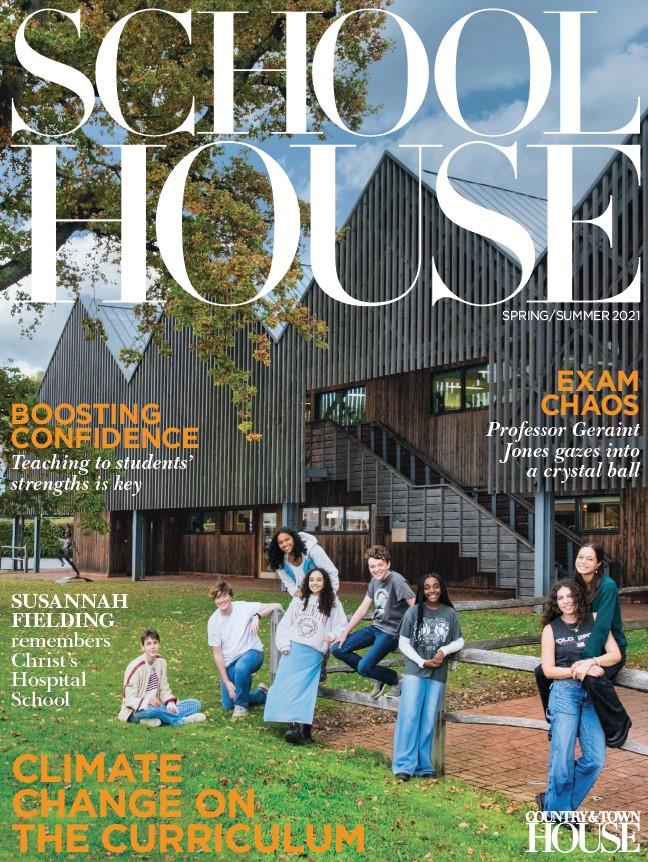Sleep and wellbeing – Bedales in School House magazine
Bedales features on the cover of the Spring/Summer issue of School House magazine, whilst inside Magnus Bashaarat discusses Bedales’ bold move towards a later start to the school day – in pursuit of better sleep for pupils and the associated benefits.

Modern science confirms the centrality of sleep in relation to wellbeing and cognitive performance. The evidence base has grown in recent years, with Sarah-Jayne Blakemore’s Inventing Ourselves highlighting that teenage sleep patterns shift dramatically during adolescence.
Circadian rhythms – our biologically set schedule of sleepiness or wakefulness – shift progressively later during adolescent years so that the impulse to go to sleep starts later at night, and the need to remain asleep lasts longer into the morning. The last phase of a full night’s sleep is the most important for memory consolidation, and if we cut it off by pulling teenagers out of bed too early, the ‘download’ from the hippocampus, where short term memories are stored during the day for transfer to long term memory at night, is incomplete. A lack of sleep is devastating for learning effectiveness. It’s also terrible for mental health.
Magnus says: “At Bedales, we decided that the case for change was compelling. Our students reported being significantly under-slept throughout term time. Much consultation and planning later, the Later Start initiative saw a new school day, designed to start compulsory activities a full hour later than before in the hope that more natural and replenishing sleep would follow. We lay on optional activities in the morning for early birds, but the breakfast window has widened to accommodate later sleepers. Later Start is mid-pilot, but early signs are encouraging with 93% of students reported that they have benefited from the change.”
He concludes: “We will continue to collect data and listen to feedback as our pilot plays out, but it feels as though we have taken a significant step forward in addressing a long-standing issue in adolescent wellbeing.”
The full article can be read by clicking on the link below, with thanks to School House magazine for permission to publish:

